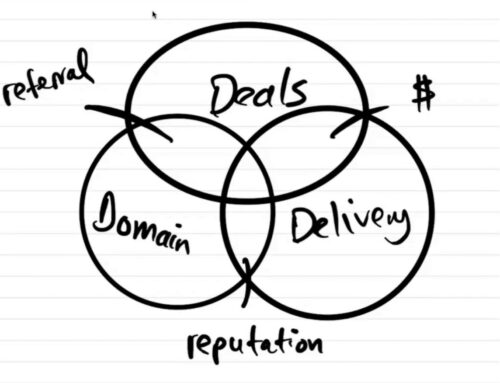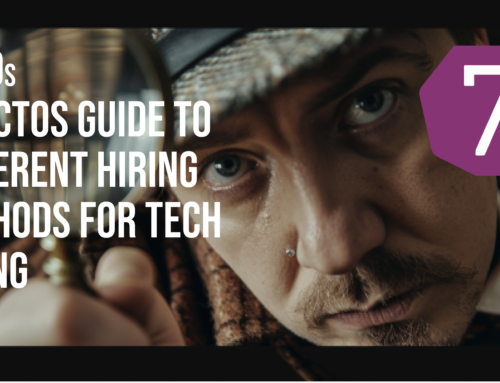Why Creating Diversity in Tech Matters, with Alex Balazs
The topic of “why creating diversity in tech matters” is a popular subject, and it’s something I’m asked about frequently. To give his seasoned insight is Alex Balazs, our guest today.
Alex has been with Intuit for 19 years, and is a Senior Vice President and Chief Architect. He’s also an advisory board member for Tech Women @ Intuit, a program dedicated to making Intuit the top choice for women technologists. He’s learned much from being involved in that program, along with his other responsibilities at Intuit. You’ll hear him impart that wisdom on today’s edition of CTO Studio.
In this episode, you’ll hear:
- What is ambidextrous leadership?
- What’s the worst advice women in tech can receive?
- Successful software development requires certain traits – what are they?
- How has the computer science world become a more male-dominated industry – was it technology or society?
- What percentage of Intuit’s customer base is female?
- And so much more!
He just got back from a Girls Who Code event, so we jumped right into the reasons we need more women in tech. Alex stumbled into this area about 6 or 7 years ago. He says he grew up at Intuit, and one part of that growing up has been understanding the power of diversity.
One of the classic stories about diversity is when the iPhone was first released. Apple was looking through all of the pictures that were being taken. They noticed 12% of the pictures were upside down, and at first they couldn’t figure out why. But eventually they realized that in the real world, there are people who are left-handed! But on their development team, everyone was right-handed, so they never thought of how to solve for left-handed people.
That’s an absurd example, according to Alex, but he says to think about it, and then think about the same example in the world of gender diversity, racial diversity, etc.
Expanding on that topic, I also asked Alex about diversity in reference to team dynamics and collaboration – what has he seen within that context?
It’s especially interesting, he says, in their partnership with Girls Who Code. Young women come to the Intuit campus and many of them have a perception of what it is like to be a successful software engineer, based on the images they see in TV and the movies. And it’s usually an image of a guy in a hoodie sitting in a basement somewhere writing code.
But when they come to the Intuit campus, they see the collaboration that goes into software development. And they love collaborating! Software development is a place where you have to be able to communicate very well, and they love communicating. Software development requires great leadership and these young women love developing their leadership skills.
So if you only recruit a certain segment of the population for software development, you won’t necessarily attract the type of person who will succeed in this type of role.
In terms of the team dynamic, it’s important to bring in people who are comfortable delivering on the other parts of their “native genius” (a term used at Intuit which describes the things that a person is natively awesome at doing and the gifts you have that you can bring to others). And it’s vital to bring in people who are diverse racially, economically, gender-wise, etc. because it brings out the best in everyone.
On this episode of CTO Studio, we also talk about how we got to this point – was it society or technology? Alex believes it was both. Some of the early stories about why computer science was a very male-dominated field in the beginning show the job category itself was built around the kinds of characteristics that are more common in men.
But there’s also the aspect of technology got us here – as we learn what it’s like to create technology, there are schools now that are built around how Silicon Valley software companies work.
He has heard this from people who developed these schools, and when they say this, he asks how they built their curriculum. They tell him it’s very collaborative, and less about individual tasks and more about working together. That type of environment is true at Intuit and other tech campuses he has been to – there are fewer and fewer individual offices and more collaborative work spaces.
The engineers at Intuit hang out together in common areas with big tables and comfortable chairs. As they write software, sometimes they need uninterrupted coding time so they go into drop-down offices for that, but a huge part of their work is peer programming and writing code right there with someone at the same time. They often write code and get it immediately reviewed.
The software industry has really developed and grown; it has realized that individual software development rarely gets you to where you want to go. Today you need different skills: you need to know how to be confrontational while still being collaborative. You need to know how to speak up and stand up for yourself. You have to have these traits to move into positions of influence, authority and leadership.
To elaborate on this idea of leadership, I asked Alex what he does when he is in a meeting and notices someone is withdrawing. What techniques does he use to draw people out, especially when in a real-time meeting?
In the real-time scenario, Alex says, as the leader in the room you have to draw people out. You have to create space for them. When he became the chief architect of TurboTax, he brought together some of the senior-level architects and engineers in a meeting, and the first thing he told them was that he would be the ultimate approver of every technology decision in this group and he would make zero decisions! Instead, he was going to create an environment in which decisions get made.
Now, of course, he knew he would have to make some decisions, but his mindset was to make as few as possible, which in turn would lead his senior technologists doing the same. So the decisions would have to be made at the front lines; now, there’s an environment in which there is space for people to lead and grow.
So if we create space, we can open things up for more diversity. If all the senior people in the room make all the decisions and none of the junior people do, then the best possible decisions aren’t being made.
Instead, Intuit embraces the idea of “shared vision”. Alex tells us what that is, along with why you have to be vulnerable to receive praise, and how there is a huge opportunity happening now to do data the right way. This is an insightful conversation for anyone in tech – be sure to listen in to today’s CTO Studio!
Episode Resources:
The Myth of Excellence, by Fred D. Crawford
Share This Story, Choose Your Platform!
Related Podcasts




